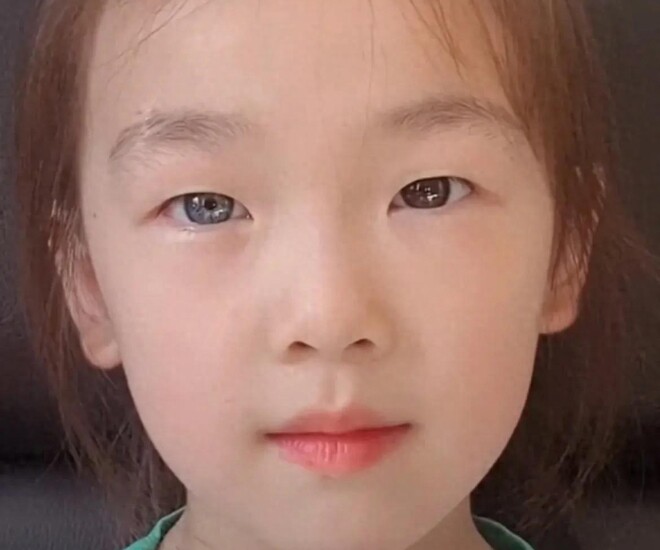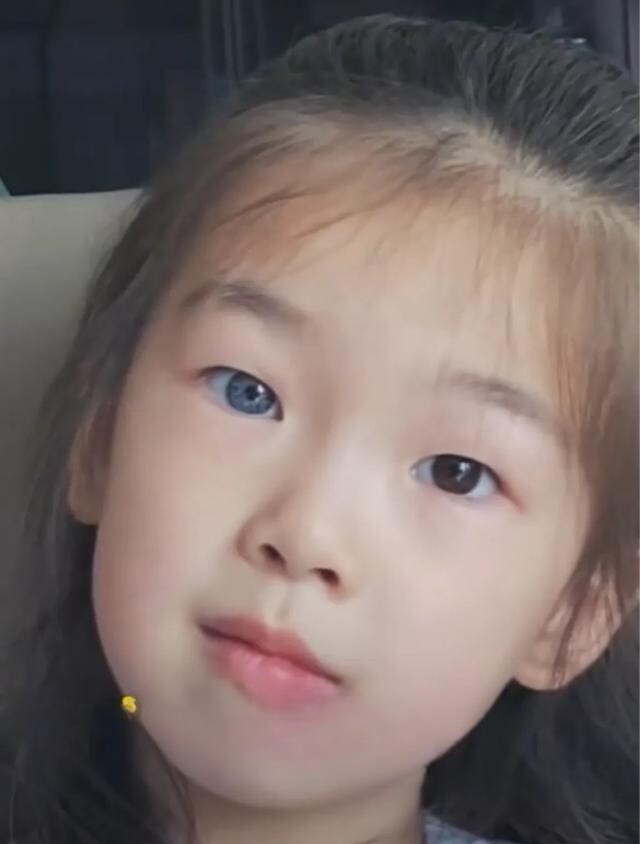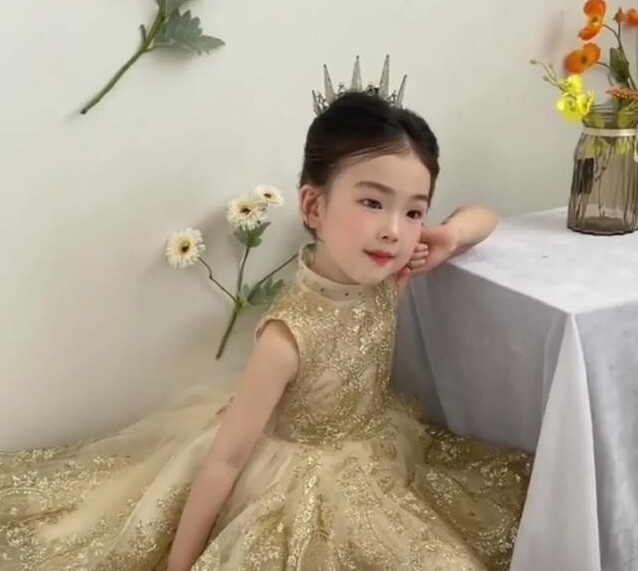The story of a 6-year-old girl who rose to internet fame overnight in China has captured the hearts of many. It all started when the little girl’s mother posted a portrait of her daughter on social media, and people noticed her unique eyes. While one eye was a typical dark brown, the other was a sparkling blue, resembling a miniature galaxy.

This rare eye color is believed to occur in less than 1% of the population, making the little girl quite extraordinary. Her parents were initially startled and concerned when they noticed their daughter’s unusual eye color, as no one else in the family had it. Fearing that she might have a rare disease, they rushed her to the hospital.
However, their worries melted away when the doctor delivered the diagnosis. It turned out that the little girl’s unique eyes were simply a physiological phenomenon with no impact on her vision or health. Netizens embraced the little girl’s “odd-eyed” appearance, believing it to be a gift from the heavens that set her apart from everyone else.


This condition, known as eye pigmentation disorder, is indeed rare in medical literature. It occurs due to genetic variations that result in uneven melanin deposition in the iris, leading to different eye colors. In most cases, this disorder is purely cosmetic and does not affect vision.
However, it is important to note that in some instances, it could be associated with underlying genetic conditions. Therefore, it is advisable for parents who notice similar eye pigmentation differences in their children to seek medical advice. Early detection and intervention can rule out any potential health risks and provide reassurance to concerned parents.
While this little girl’s unique eyes add to her distinctiveness, it is important to address how parents can raise children with distinctive physical features. Parenting a child with unique physical characteristics requires sensitivity, patience, and, most importantly, unconditional love. Creating a loving and accepting environment is crucial to boosting the child’s self-esteem and understanding that diversity is natural.
Encouraging children to engage in activities they enjoy, whether sports or arts, fosters skill development and builds self-worth. Educating them about diversity and respect for differences is also key. Parents should guide their children on how to respond to curiosity or criticism from others, helping them develop coping mechanisms and confidence in social interactions.
Additionally, seeking support from psychological experts can benefit the entire family. Lastly, parents should be patient listeners, ready to address their child’s concerns, and provide opportunities for social engagement and friendship-building. By implementing these strategies, parents can empower their uniquely featured children to grow into confident and healthy individuals, setting them up for a bright and fulfilling future.



































